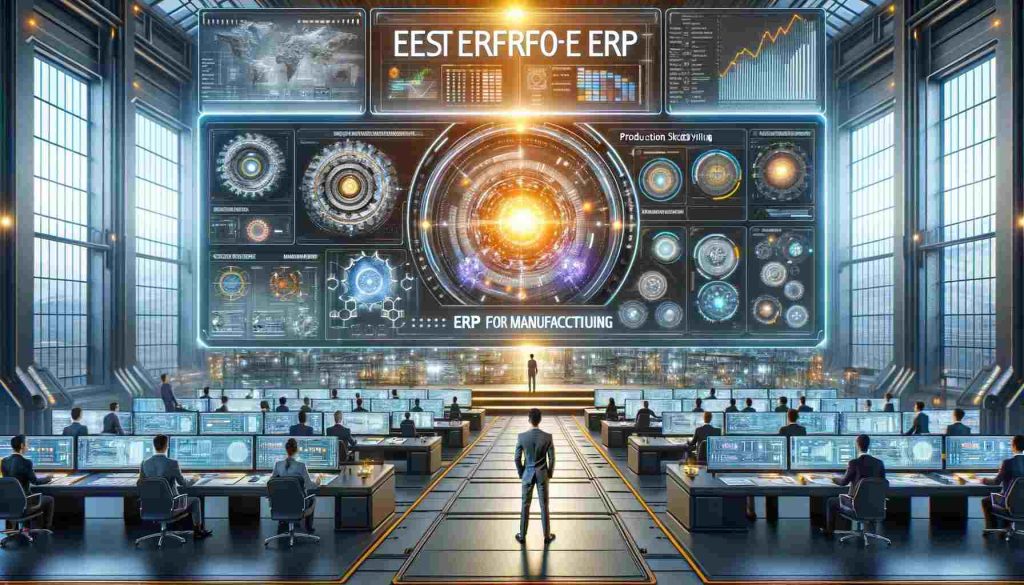
The landscape of manufacturing is continually evolving, driven by technological advancements and shifting market demands. Enterprise Resource Planning (ERP) systems have long been at the core of manufacturing operations, integrating various business processes to enhance efficiency, reduce costs, and improve profitability. As we move further into the digital age, the role of ERP systems in manufacturing is set to transform dramatically. This article explores the future trends in ERP within the manufacturing sector, highlighting how these systems are adapting to meet the challenges of a rapidly changing industry.
The Integration of IoT and ERP
One of the most significant trends in manufacturing ERP systems is the integration of the Internet of Things (IoT). IoT technology involves the use of sensors and connected devices to collect and analyze data from physical assets. By integrating IoT with ERP systems, manufacturers can gain real-time insights into their operations, enhancing visibility across the production line and supply chain. This connectivity allows for more accurate forecasting, improved inventory management, and proactive maintenance of equipment, minimizing downtime and operational costs.
Advanced Analytics and Big Data
As manufacturing ERP systems collect vast amounts of data, the use of advanced analytics and big data technologies is becoming increasingly crucial. These tools can analyze complex datasets to uncover patterns and insights that were previously inaccessible. Manufacturers can use these insights to optimize production processes, enhance product quality, and make more informed business decisions. Future ERP systems will likely feature built-in analytics capabilities, providing dashboards and visualizations that help users interpret data and track performance metrics more effectively.
Cloud-based ERP Solutions
The shift towards cloud-based ERP solutions is another key trend in the manufacturing industry. Cloud ERP offers several advantages over traditional on-premise systems, including lower upfront costs, scalability, and easier integration with other cloud-based applications. As manufacturers increasingly adopt a hybrid work model and manage operations across multiple locations, the flexibility and accessibility of cloud-based ERP systems become essential. These systems can also facilitate better collaboration among teams and with external partners, enhancing agility and competitiveness.
ERP and Artificial Intelligence
Artificial Intelligence (AI) is set to revolutionize ERP systems in manufacturing. AI can automate routine tasks, such as data entry and analysis, freeing up human workers to focus on more strategic activities. Moreover, AI-powered ERP systems can provide predictive insights, helping manufacturers anticipate market changes, manage risks, and respond to customer demands more effectively. Future ERP systems will likely incorporate machine learning algorithms that continuously improve their predictions and recommendations based on new data, leading to smarter, more adaptive manufacturing processes.
Enhanced Focus on Customer Experience
Manufacturing is no longer just about producing goods; it’s increasingly about delivering comprehensive customer experiences. Modern ERP systems are evolving to support this shift, integrating tools for customer relationship management (CRM), e-commerce, and after-sales service. These systems enable manufacturers to maintain a single view of customer interactions across multiple channels, improving service delivery and customer satisfaction. Future ERP solutions will likely place even greater emphasis on customer-centric features, helping manufacturers differentiate themselves in a competitive market.
Sustainability and ERP
As environmental concerns become more pressing, manufacturers are looking for ways to reduce their ecological footprint. Future ERP systems will play a crucial role in this by optimizing resource use and improving energy efficiency. These systems can help manufacturers adhere to regulatory standards and participate in green initiatives, such as circular economy practices. By tracking and analyzing environmental data, ERP systems can also help companies achieve their sustainability goals, such as reducing waste or lowering emissions.
Conclusion
The future of ERP in manufacturing is rich with potential, shaped by advancements in technology and shifts in business practices. As manufacturers face increasing pressure to be more efficient, responsive, and sustainable, ERP systems must evolve to meet these challenges. The integration of IoT, AI, and advanced analytics, along with the shift towards cloud-based solutions and a focus on customer experience and sustainability, are key trends that will define the next generation of ERP in manufacturing. By staying ahead of these trends, manufacturers can ensure they are well-equipped to navigate the future landscape and achieve continued success in their operations.
Read Dive is a leading technology blog focusing on different domains like Blockchain, AI, Chatbot, Fintech, Health Tech, Software Development and Testing. For guest blogging, please feel free to contact at readdive@gmail.com.
